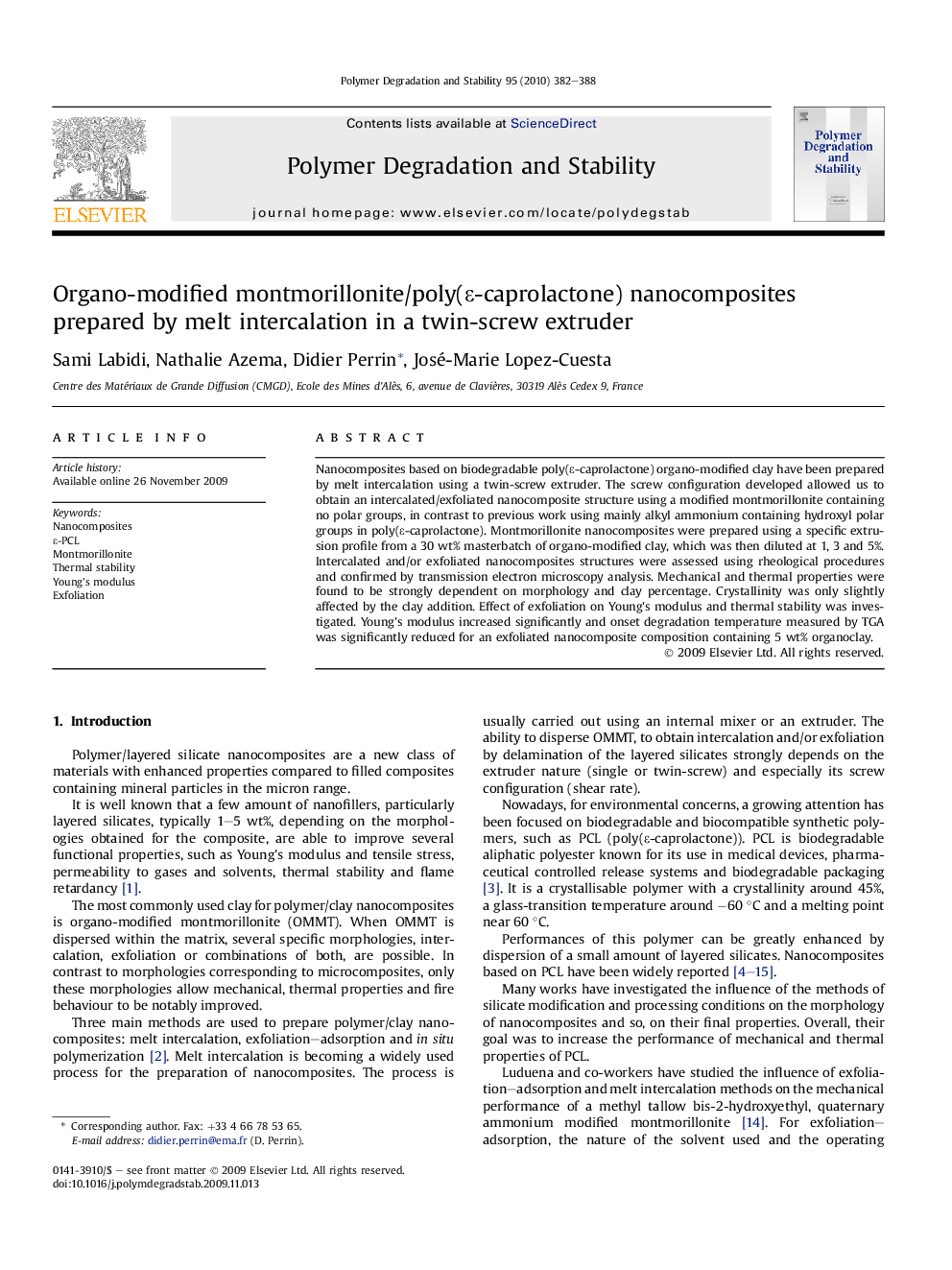| Article ID | Journal | Published Year | Pages | File Type |
|---|---|---|---|---|
| 5202847 | Polymer Degradation and Stability | 2010 | 7 Pages |
Abstract
Nanocomposites based on biodegradable poly(É-caprolactone) organo-modified clay have been prepared by melt intercalation using a twin-screw extruder. The screw configuration developed allowed us to obtain an intercalated/exfoliated nanocomposite structure using a modified montmorillonite containing no polar groups, in contrast to previous work using mainly alkyl ammonium containing hydroxyl polar groups in poly(É-caprolactone). Montmorillonite nanocomposites were prepared using a specific extrusion profile from a 30Â wt% masterbatch of organo-modified clay, which was then diluted at 1, 3 and 5%. Intercalated and/or exfoliated nanocomposites structures were assessed using rheological procedures and confirmed by transmission electron microscopy analysis. Mechanical and thermal properties were found to be strongly dependent on morphology and clay percentage. Crystallinity was only slightly affected by the clay addition. Effect of exfoliation on Young's modulus and thermal stability was investigated. Young's modulus increased significantly and onset degradation temperature measured by TGA was significantly reduced for an exfoliated nanocomposite composition containing 5Â wt% organoclay.
Related Topics
Physical Sciences and Engineering
Chemistry
Organic Chemistry
Authors
Sami Labidi, Nathalie Azema, Didier Perrin, José-Marie Lopez-Cuesta,
